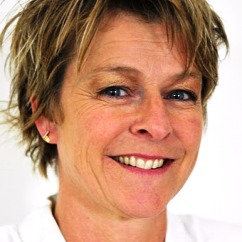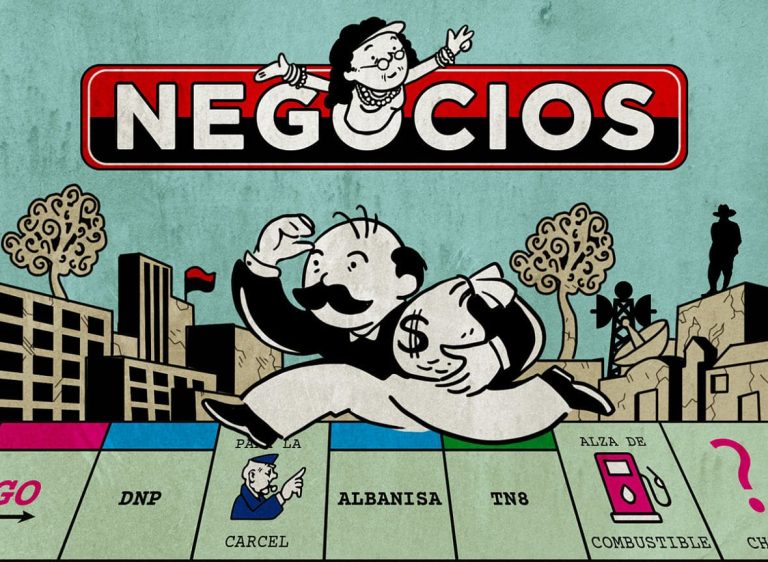Margo Smit
Margo Smit is an independent investigative journalist, journalism teacher and (part-time) director of the Dutch-Flemish Association of Investigative Journalists VVOJ. She received her Masters degree in Communication (specialization journalism) from Stanford University, Palo Alto, USA. She briefly worked as a reporter at the Longview Daily News, and has since researched, written and produced documentaries in Dutch and English, both for Dutch public television and for international sales. Subjects were nuclear proliferation, enlargement of the European Union, counterfeiting of the euro, the banking industry, former Dutch politician Ayaan Hirsi Ali, the murder of publicist Theo van Gogh.
Smit freelanced as a researcher and/or reporter for several international publications and media outlets, such as TSR’s Temps Présent (Switserland), Seven Network’s Sunday Night (Australia) and ABC ‘Four Corners’ (Australia).
Smit’s employer VVOJ in 2005 organized the third Global Investigative Journalism Conference in Amsterdam, and Smit has since contributed to GIJC’s editions at Toronto (2007), Lillehammer (2008), Geneva (2010), Kiev (2011) and Rio di Janeiro (2013). She sat on the Global Shining Light Award jury (2010), the jury of the Daniel Pearl Award (2010, 2011, 2013) and the M.J. Brusseprijs (2013).
In 2012, Smit lead a team of over 80 European journalists to compile the report Deterrence of fraud with EU-funds through investigative journalism in EU-27. The report was written on request of the European Parliament’s Budgettary Control Committee, with Smit as principal author. Highlights can be found here.
![]() Smit is a member of Investigative Reporters and Editors (IRE), the Global Investigative Journalism Network, and the International Consortium of Investigative Journalists (ICIJ). She was a delegate for Western Europe at the IWMF International Woman Media Leaders Conference in March 2011 and taught masterclasses in investigative journalism at the 34th IAWRT conference in Kuala Lumpur. Smit was a key note speaker at the 2014 ACFE European Fraud Conference in March 2014. In May 2014, she taught at online Universiteit van Nederland.
Smit is a member of Investigative Reporters and Editors (IRE), the Global Investigative Journalism Network, and the International Consortium of Investigative Journalists (ICIJ). She was a delegate for Western Europe at the IWMF International Woman Media Leaders Conference in March 2011 and taught masterclasses in investigative journalism at the 34th IAWRT conference in Kuala Lumpur. Smit was a key note speaker at the 2014 ACFE European Fraud Conference in March 2014. In May 2014, she taught at online Universiteit van Nederland.
As a candidate for the new board in GIJN, she says:
The Dutch-Flemish Association of Investigative Journalists VVOJ has been a member of GIJN since its inception at the 2nd Global Conference 2003 in Copenhagen. After having organized the 3rd Global Conference in 2005 in Amsterdam and thus experiencing how the international community can be of help in such a daring task (as well as ‘how not’ ;-)), VVOJ believes in being an active member of the volunteer steering committee, and share its knowledge on organizing, planning and financing cutting edge investigative reporting conferences.
As the director of VVOJ, I have since been its representative on the volunteer steering committee, trying to support the small GIJN staff where possible (through fundraising, voting committee, organizing and running workshops at GIJC, helping with a project on promoting investigative reporting worldwide, being a representative for GIJN at certain EU-levels and meetings in the European community).
I believe GIJN is an important and central part of our international investigative ecosystem, functioning not only as a collective memory of the movement, but being able to truly help local and regional members with the practical, financial and organizational aspects to conference organizing, fundraising and overall professionalization. With all the ambitions the movement has, GIJN should be strong, transparent, diverse and present where and when our profession is at stake to continue to make a difference.
Investigative reporting is not easy, and investigative reporters aren’t easy people either. The board of GIJN must contain people who know how to constructively represent the many different backgrounds and beliefs that are held within the investigative community. Its diversity is its strength, the board should reflect that.
With my extensive knowledge of the European context, my ability to let investigative minds work together (in 2012 I wrote a report on the state of investigative reporting for the European Parliament, with the help of more than 80 reporters from all over Europe), and long expertise in running an investigative reporters’ association, I believe I can be an asset to the GIJN future board.










